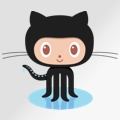Using Yoctopuce built-in data logger
![]() Most of our USB sensors include an embedded data logger. It is trivial to activate this data logger. However, after using it for a while, we noticed that the programming interface used to retrieve the data is not very intuitive. We therefore decided to bring some improvements to it to facilitate its use. Here is an outline of what will probably change, to provide you with the opportunity to give us your feedback before the choices are definite.
Most of our USB sensors include an embedded data logger. It is trivial to activate this data logger. However, after using it for a while, we noticed that the programming interface used to retrieve the data is not very intuitive. We therefore decided to bring some improvements to it to facilitate its use. Here is an outline of what will probably change, to provide you with the opportunity to give us your feedback before the choices are definite.
| 3 comments | Read more... |
Yoctopuce libraries, GitHub, PyPI, and Raspberry Pi
 This week, we publish a new version of all of our libraries and of the VirtualHub. Among the improvements, the Android, C++, C#, Delphi, Java, JavaScript, Objective-C, PHP, and VB.Net libraries are now also available on GitHub. Likewise, you can download the Python library easily via PyPI (Python Package Index). To illustrate these changes, we are going to update our "PiCooker" example software so that it uses the library available on PyPI. We will take this opportunity to make a few improvements to the code.
This week, we publish a new version of all of our libraries and of the VirtualHub. Among the improvements, the Android, C++, C#, Delphi, Java, JavaScript, Objective-C, PHP, and VB.Net libraries are now also available on GitHub. Likewise, you can download the Python library easily via PyPI (Python Package Index). To illustrate these changes, we are going to update our "PiCooker" example software so that it uses the library available on PyPI. We will take this opportunity to make a few improvements to the code.
| 3 comments | Read more... |
Voltage monitoring with Python
![]() Sometimes people ask us for help about programming applications involving our devices. For instance, we have been asked for an application able to monitor mains voltage, with a variable sampling rate. Well, why not ? It has been a while since we haven't shown how easy our API is.
Sometimes people ask us for help about programming applications involving our devices. For instance, we have been asked for an application able to monitor mains voltage, with a variable sampling rate. Well, why not ? It has been a while since we haven't shown how easy our API is.
| 2 comments | Read more... |
Driving Yoctopuce modules through a NAT filter
![]() When you install a home automation system at home, a common problem is to control it from outside. Indeed, network connection through a DSL router usually protects the home network through an address translation mechanism (NAT). This renders local machines invisible from the outside. Today, we present a solution to work around this issue without lowering the security of your private network. A practical example in home automation will follow in the post of next week.
When you install a home automation system at home, a common problem is to control it from outside. Indeed, network connection through a DSL router usually protects the home network through an address translation mechanism (NAT). This renders local machines invisible from the outside. Today, we present a solution to work around this issue without lowering the security of your private network. A practical example in home automation will follow in the post of next week.
| No comment yet | Read more... |
Device Inventory vs Plug And Play
![]() If you have to code a Yoctopuce devices inventory, you would probably want to explicitly build a list using the appropriate API functions. But this is not the most convenient method if you wish to handle devices plug/unplug events during the application life.
If you have to code a Yoctopuce devices inventory, you would probably want to explicitly build a list using the appropriate API functions. But this is not the most convenient method if you wish to handle devices plug/unplug events during the application life.
| No comment yet | Read more... |


